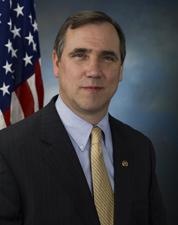0
Soil CARE Act of 2023
3/14/2024, 4:03 AM
Summary of Bill S 3023
The bill focuses on incentivizing farmers and landowners to adopt practices that increase soil carbon sequestration, such as no-till farming, cover cropping, and agroforestry. These practices not only help to reduce greenhouse gas emissions by storing carbon in the soil, but also improve soil fertility, water retention, and biodiversity.
Additionally, the Soil CARE Act includes provisions for funding reforestation projects on public and private lands, with the goal of increasing forest cover and enhancing ecosystem services such as carbon sequestration, wildlife habitat, and water quality. Overall, the Soil CARE Act of 2023 aims to address the dual challenges of climate change and soil degradation by promoting sustainable land management practices and investing in reforestation efforts. By supporting these initiatives, the bill seeks to protect the environment, support rural economies, and build resilience to the impacts of a changing climate.
Congressional Summary of S 3023
Soil Conservation And Regeneration Education Act of 2023 or the Soil CARE Act of 2023
This bill directs the Department of Agriculture (USDA) to establish a training program for biological soil health management in Natural Resources Conservation Service (NRCS) programs.
Under the bill, biological soil health management means land management methods used to increase and balance soil biology, such as microbial biomass and macrofauna, for the purpose of improving biological functions, including forming and stabilizing soil structure, cycling nutrients, controlling pests and disease, and degrading or detoxifying contaminants.
The training program must (1) provide education, resources, and technical support to USDA personnel and third-party providers on the rapidly evolving methodologies, science, and practices for improving soil health; and (2) assist USDA personnel and third-party providers in supporting agricultural producers in understanding and implementing biological soil health management systems that regenerate farmland.
The training program must be available twice every two years in each NRCS region and include both an online curriculum and in-person training workshops.
The training program must be developed and delivered through cooperative agreements with entities with biological soil health management systems expertise and experience working with and training producers.
The bill includes minimum curriculum requirements for the training program, including specific units on soil health and diversified production systems.
USDA must review and update the training program curriculum every two years.

